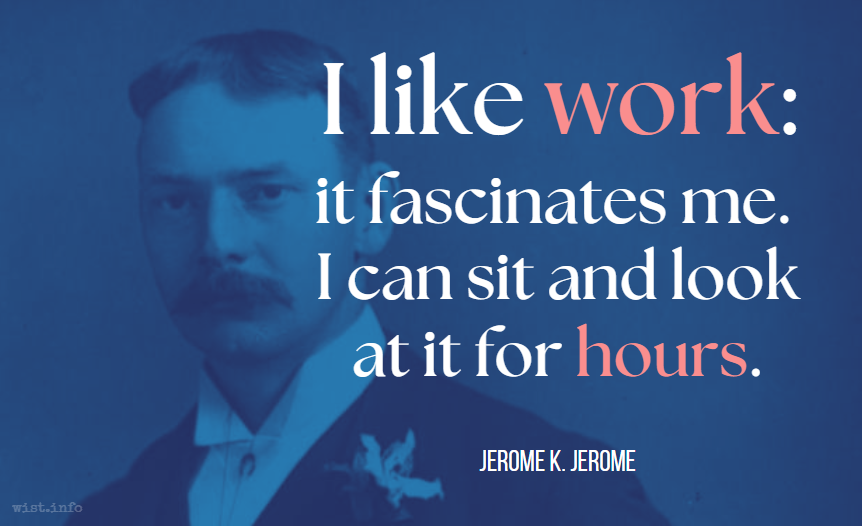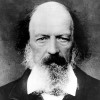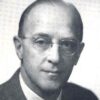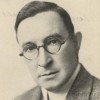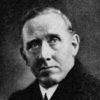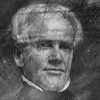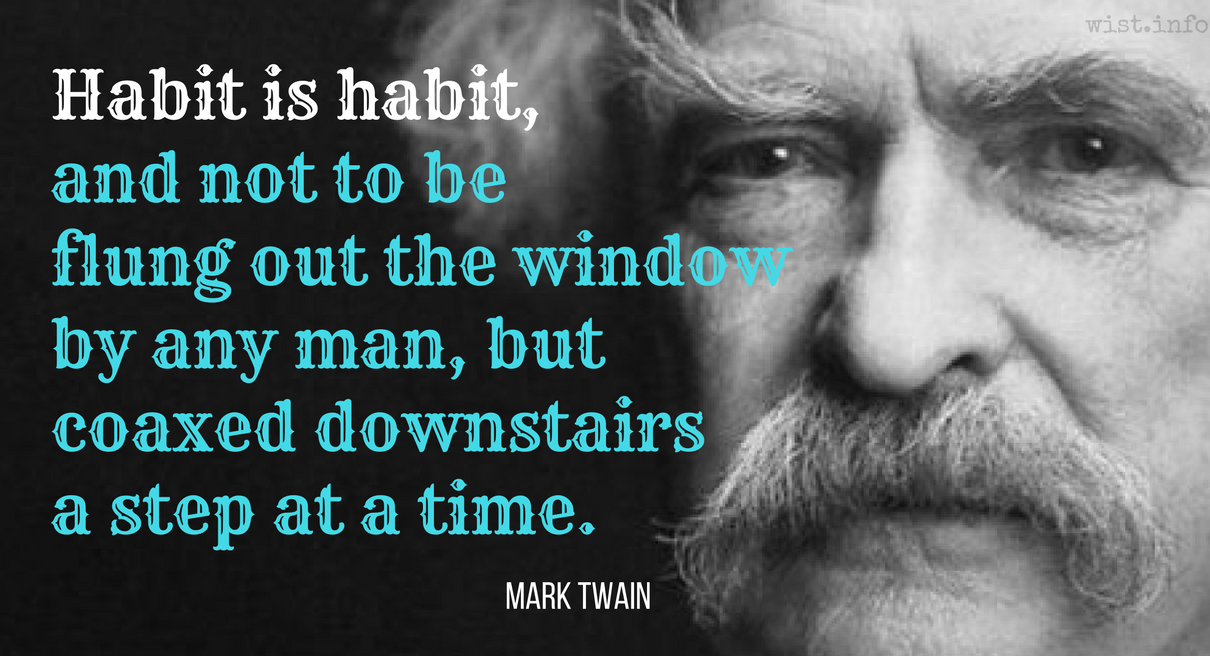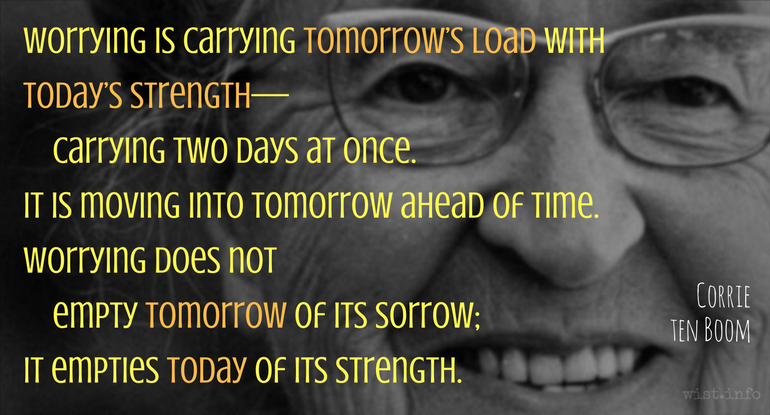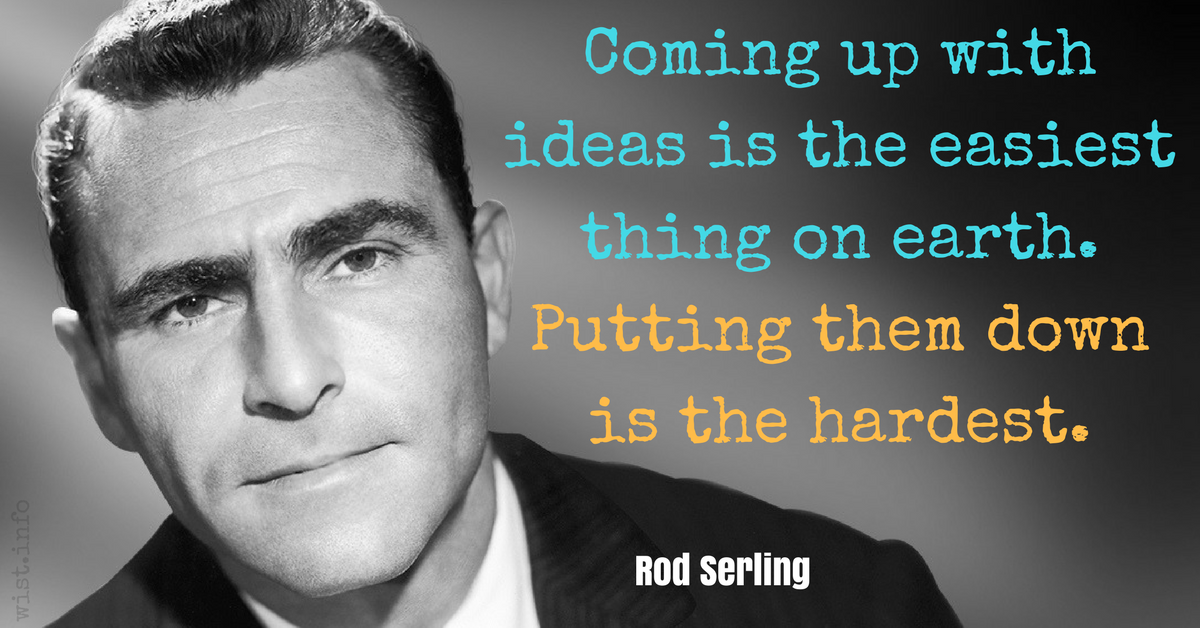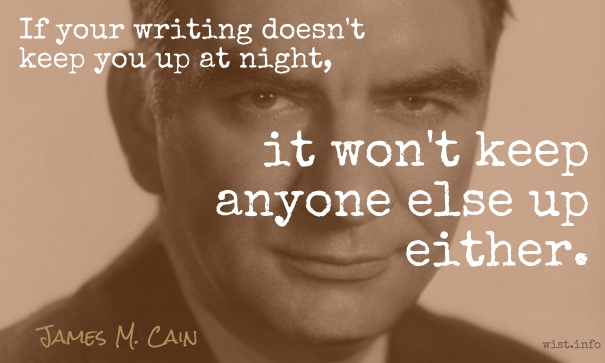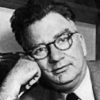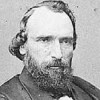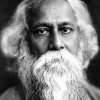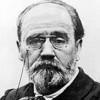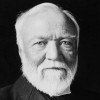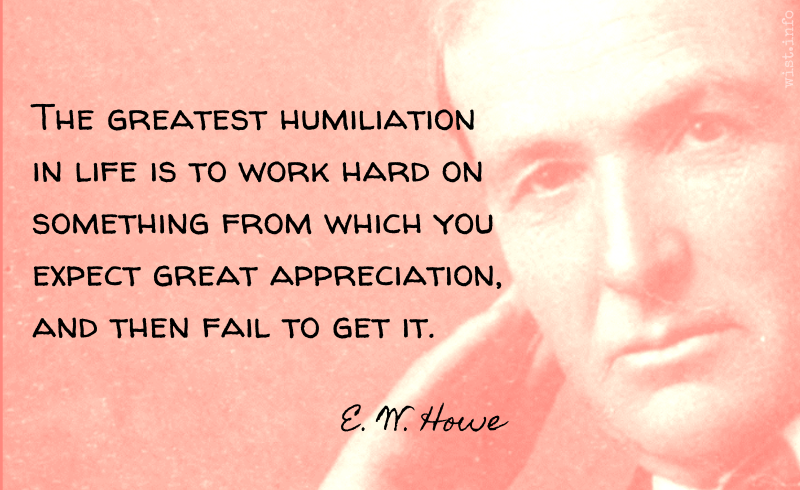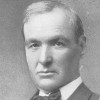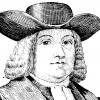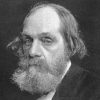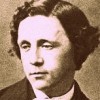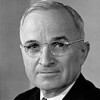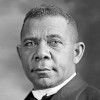Paines to get, care to keep, feare to lose.
George Herbert (1593-1633) Welsh priest, orator, poet.
Jacula Prudentum, or Outlandish Proverbs, Sentences, &c. (compiler), # 975 (1640 ed.)
(Source)
Quotations about:
effort
Note not all quotations have been tagged, so Search may find additional quotes on this topic.
It always does seem to me that I am doing more work than I should do. It is not that I object to the work, mind you; I like work: it fascinates me. I can sit and look at it for hours. I love to keep it by me: the idea of getting rid of it nearly breaks my heart.
Jerome K. Jerome (1859-1927) English writer, humorist [Jerome Klapka Jerome]
Three Men in a Boat (To Say Nothing of the Dog), ch. 15 (1889)
(Source)
God helps them that help themselves.
Benjamin Franklin (1706-1790) American statesman, scientist, philosopher, aphorist
Poor Richard (1736 ed.)
(Source)
Sometimes misattributed as a Biblical proverb. A modern variant is "God helps those that help themselves."
MACBETH: If chance will have me king, why, chance may crown me
Without my stir.William Shakespeare (1564-1616) English dramatist and poet
Macbeth, Act 1, sc. 3, l. 158ff (1.3.158-159) (1606)
(Source)
Diligence is the Mother of Good-Luck.
Benjamin Franklin (1706-1790) American statesman, scientist, philosopher, aphorist
Poor Richard (1736 ed.)
(Source)
We are to have a tiny party here tonight. I hate tiny parties, they force one into constant exertion.
By some happy fortuity, man is a projector, a designer, a builder, a craftsman; it is among his most dependable joys to impose upon the flux that passes before him some mark of himself, aware though he always must be of the odds against him. His reward is not so much in the work as in its making; not so much in the prize as in the race. We may win when we lose, if we have done what we can; for by so doing we have made real at least some part of that finished product in whose fabrication we are most concerned: ourselves.
Learned Hand (1872-1961) American jurist
Speech (1955-01-29), “A Fanfare for Prometheus,” American Jewish Committee annual dinner, New York City
(Source)
Man is so made that he can only find relaxation from one kind of labor by taking up another.
Anatole France (1844-1924) French poet, journalist, novelist, Nobel Laureate [pseud. of Jaques-Anatole-François Thibault]
The Crime of Sylvestre Bonnard, Part 2, ch. 4 “The Little Saint-George,” “June 3” (1881)
(Source)
When we are working at a difficult task and strive after a good thing we fight a righteous battle, the direct reward of which is that we are kept from much evil.
By diligence and patience, the mouse bit in two the cable.
Benjamin Franklin (1706-1790) American statesman, scientist, philosopher, aphorist
Poor Richard (1735 ed.)
(Source)
You and I are old;
Old age hath yet his honour and his toil;
Death closes all: but something ere the end,
Some work of noble note, may yet be done,
Not unbecoming men that strove with Gods.
When we look forward and try to project what may come out of a development, we are always wrong, because the by-products sometimes become far more important than the primary thing you started out to accomplish. Nevertheless, unintelligent motion is a great deal more important in research than intelligent standing still.
Charles F. Kettering (1876-1958) American inventor, engineer, researcher, businessman
“250 at Luncheon Honor Kettering,” New York Times (1936-11-11)
(Source)
Getting what you go after is success; but liking it while you are getting it is happiness.
Bertha Damon (1881-1975) American humorist, author, lecturer, editor [Bertha Clark Pope Damon]
A Sense of Humus, ch. 13 “Garden Sass” (1943)
(Source)
You can’t have a picnic lunch unless the party carrying the basket comes.
It [political opposition] is like dancing with a bear. When you’re dancing with a bear, you can’t get tired and sit down. You have to wait for the bear to get tired.
Joycelyn Elders (b. 1933) American pediatrician, public health administrator, academic
Keynote Speech, Sistersong Conference, Chicago (2007-06-03)
(Source)
All work is as seed sown; it grows and spreads, and sows itself anew.
Thomas Carlyle (1795-1881) Scottish essayist and historian
“Boswell’s Life of Johnson,” Critical and Miscellaneous Essays (1827-1855)
(Source)
Originally published in Fraser's Magazine, Vol 5, # 28 (1832). Reviewing a new 1831 edition of James Boswell, The Life of Samuel Johnson.
Why is it that we remember with effort but forget without effort? That we learn with effort but stay ignorant without effort? That we are active with effort, and lazy without effort?
[Quid est enim, quod cum labore meminimus, sine labore obliuiscimur; cum labore discimus, sine labore nescimus; cum labore strenui, sine labore inertes sumus?]Augustine of Hippo (354-430) Christian church father, philosopher, saint [b. Aurelius Augustinus]
City of God [De Civitate Dei], Book 22, ch. 22 (22.22) (AD 412-416) [tr. Green (Loeb) (1972)]
(Source)
(Source (Latin)). Alternate translations:What is our labour to remember things, our labour to learn, and our ignorance without this labour? our agility got by toil, and our dullness if we neglect it?
[tr. Healey (1610)]For why is it that we remember with difficulty, and without difficulty forget? learn with difficulty, and without difficulty remain ignorant? are diligent with difficulty, and without difficulty are indolent?
[tr. Dods (1871)]How difficult it is to remember, how easy to forget; how hard to learn and how easy to be ignorant; how difficult to make an effort and how easy to be lazy.
[tr. Walsh/Honan (1954)]How is it that what we learn with toil we forget with ease? that it is hard to learn, but easy to be in ignorance? That activity goes against the grain, while indolence is second nature?
[tr. Bettenson (1972)]Why is it that we remember with such difficulty, but forget so easily? Why is it that we learn with such difficulty, yet so easily remain ignorant? Why is it that we are vigorous with such difficulty, yet so easily inert?
[tr. Dyson (1998)]
Fortune sumtimes shows us the way, but it iz energy that achieves sucksess.
[Fortune sometimes shows us the way, but it is energy that achieves success.]
Josh Billings (1818-1885) American humorist, aphorist [pseud. of Henry Wheeler Shaw]
Everybody’s Friend, Or; Josh Billing’s Encyclopedia and Proverbial Philosophy of Wit and Humor, ch. 131 “Affurisms: Plum Pits (1)” (1874)
(Source)
This process of the good life is not, I am convinced, a life for the faint-hearted. It involves the stretching and growing of becoming more and more of one’s potentialities. It involves the courage to be. It means launching oneself fully into the stream of life.
Genius begins great works; but labour alone finishes them.
[Le génie commence les beaux ouvrages, mais le travail seul les achève.]
Joseph Joubert (1754-1824) French moralist, philosopher, essayist, poet
Pensées [Thoughts], ch. 23 “Des Qualités de l’Écrivain et des Compositions Littéraires [On Writers and Literature]” ¶ 52 (1850 ed.) [tr. Lyttelton (1899), ch. 22, ¶ 19]
(Source)
(Source (French)). Alternate translations:Genius begins beautiful works, but only labor finishes them.
[tr. Calvert (1866), ch. 8]Genius begins great works; labour alone finishes them.
[tr. Attwell (1896), ¶ 335]Beautiful works. Genius beings them, but labor alone finishes them.
[tr. Auster (1983)], 1801]
Character is what emerges from all the little things you were too busy to do yesterday, but did anyway.
Mignon McLaughlin (1913-1983) American journalist and author
The Second Neurotic’s Notebook, ch. 4 (1966)
(Source)
Your few quatrains are not amiss,
Your couplets too are neat; for this
You earn a mild regard,
But little fame, for many men
Can write good verses now and then —
To make a book is hard.[Quod non insulse scribis tetrasticha quaedam,
Disticha quod belle pauca, Sabelle, facis,
Laudo, nec admiror. Facile est epigrammata belle
Scribere, sed librum scribere difficile est.]Martial (AD c.39-c.103) Spanish Roman poet, satirist, epigrammatist [Marcus Valerius Martialis]
Epigrams [Epigrammata], Book 7, epigram 85 (7.85) (AD 92) [tr. Pott & Wright (1921)]
(Source)
"To Sabellus." (Source (Latin)). Alternate translations:Cause thou dost pen Tetrasticks clean and sweet
And some few pretty disticks with smooth feet,
I praise but not admire:
Tis easy to acquire
Short modest Epigrams that pretty look,
But it is hard and tough to write a book.
[tr. Fletcher (1656)]That some tetrasticks not amiss you write,
Or some few disticks prettyly indite,
I like, but not admire. With small paynes tooke
An epigram is writ; but not a booke.
[tr. Killigrew (1695)]Some not absurd tetrastichs thou may'st squeeze;
And distichs, that can scarce deny to please.
I praise, yet not admire: a verse to cook
Is no hard task; but canst thou write a book?
[tr. Elphinston (1782), Book 3, ep. 54]For sometimes writing quatrains which are not devoid of humour, Sabellus, and for composing a few distichs prettily, I commend you; but I am not astonished at you. It is easy to write a few epigrams prettily; but to write a book of them is difficult.
[tr. Bohn's Classical (1859)]Your writing, not without wit, certain quatrains, your composing nicely a few distichs, Sabellus, I applaud, yet am not surprised. 'Tis easy to write epigrams nicely, but to write a book is hard.
[tr. Ker (1919)]The fact that you can write with taste
A quatrain now and then
And even several couplets too
Is something I do commend,
But I'm not amazed, for after all
A few epigrams smart and neat
Are easy to write, but a bookful of them
Is quite another feat!
[tr. Marcellino (1968)]That you write some quatrains not without wit and turn a few couplets prettily, Sabellus, is something I praise but do not wonder at. It's easy to write epigrams prettily, but to write a book is hard.
[tr. Shackleton Bailey (1993)]A quatrain here, a couplet there,
Some decent rhymes, but let's be fair:
Your output no great author shook;
It takes much more to fill a book.
[tr. Ericsson (1995)]You wrote some clever couplets?
"Take a look."
These epigrams are fine --
but not a book.
[tr. Wills (2007)]Sabellus, that you write some witty quatrains
and craft some couplets well earns my regard,
but no surprise. To write good epigrams
is easy, but to write a book is hard.
[tr. McLean (2014)]
“Too much trouble,” “Too expensive,” or “Who will know the difference” are death knells for good food.
Julia Child (1912-2004) American chef and writer
Mastering the Art of French Cooking, Foreword (1961)
(Source)
Many shall run to and fro, and knowledge shall be increased
[Multi pertransibunt & augebitur scientia]
Francis Bacon (1561-1626) English philosopher, scientist, author, statesman
Instauratio Magna, Epigraph (1620)
(Source)
Once a musician has enough ability to get into a top music school, the thing that distinguishes one performer from another is how hard he or she works. That’s it. And what’s more, the people at the very top don’t work just harder or even much harder than everyone else. They work much, much harder.
Malcolm Gladwell (b. 1963) Anglo-Canadian journalist, author, public speaker
Outliers: The Story of Success, ch. 2 “The 10,000 Hour Rule,” sec. 2 (2008)
(Source)
Those three things — autonomy, complexity, and a connection between effort and reward — are, most people will agree, the three qualities that work has to have if it is to be satisfying.
Malcolm Gladwell (b. 1963) Anglo-Canadian journalist, author, public speaker
Outliers: The Story of Success, ch. 5, sec. 10 (2008)
(Source)
Somewhere we must come to see that human progress never rolls in on the wheels of inevitability. It comes through the tireless efforts and the persistent work of dedicated individuals who are willing to be coworkers with God. And without this hard work, time itself becomes an ally of the primitive forces of social stagnation. So we must have time and realize that the time is always right to do right.
Martin Luther King, Jr. (1929-1968) American clergyman, civil rights leader, social activist, preacher
“Remaining Awake Through a Great Revolution,” National Cathedral, Washington, DC (31 Mar 1968)
(Source)
This noble spirit saved alive
Has foiled the Devil’s will!
“He who strives on and lives to strive
Can earn redemption still.”[Gerettet ist das edle Glied
Der Geisterwelt vom Bösen,
„Wer immer strebend sich bemüht,
Den können wir erlösen.“]Johann Wolfgang von Goethe (1749-1832) German poet, statesman, scientist
Faust: a Tragedy [eine Tragödie], Part 2, Act 5, sc. 7 “Mountain Gorges,” l. 11934ff [Angels] (1808-1829) [tr. Luke (1994)]
(Source)
(Source (German)). The portion in quotation marks is not actually a quote from anything, but Goethe's thesis being highlighted. Alternate translations:Freed is the noble scion of
The Spirit-world from evil.
Him can we save that tireless strove
Ever to higher level.
[tr. Latham (1790)]Rescued is the noble limb
Of the spirit-world from the bad one:
For he who toils and ever strives
Him can we aye deliver.
[tr. Bernays (1839)]Saved is the spirit kingdom's flower
From evil and the grave.
"Who strives with all his power,
We are allowed to save."
[tr. Kaufmann (1961)]Pure spirits' peer, from evil coil
He was vouchsafed exemption;
Whoever strives in ceaseless toil,
Him we may grant redemption.
[tr. Arndt (1976)]He's saved from evil, the great soul,
Confounding clever Satan:
"Who strives, and keeps on striving still,
For him there is redemption!"
[tr. Greenberg (1998); in his 2004 revision, the last line reads "For him there is salvation."]He’s escaped, this noble member
Of the spirit world, from evil,
Whoever strives, in his endeavour,
We can rescue from the devil.
[tr. Klein (2003)]
There is always something pleasurable in the struggle and the victory. And if a man has no opportunity to excite himself, he will do what he can to create one, and according to his individual bent, he will hunt or play Cup and Ball: or led on by this unsuspected element in his nature, he will pick a quarrel with someone, or hatch a plot or intrigue, or take to swindling and rascally courses generally — all to put an end to a state of repose which is intolerable.
[Der Kampf mit ihnen und der Sieg beglückt. Fehlt ihm die Gelegenheit dazu, so macht er sie sich, wie er kann: je nachdem seine Individualität es mit sich bringt, wird er jagen, oder Bilboquet spielen, oder, vom unbewußten Zuge seiner Natur geleitet, Händel suchen, oder Intriguen anspinnen, oder sich auf Betrügereien und allerlei Schlechtigkeiten einlassen, um nur dem ihm unerträglichen Zustande der Ruhe ein Ende zu machen.]
Arthur Schopenhauer (1788-1860) German philosopher
Parerga and Paralipomena, Vol. 1, “Aphorisms on the Wisdom of Life [Aphorismen zur Lebensweisheit],” ch. 5 “Counsels and Maxims [Paränesen und Maximen],” § 2.17 (1851) [tr. Saunders (1890)]
(Source)
(Source (German)). Alternate translation:The struggle with [obstacles] and the triumph make him happy. If he lacks the opportunity for this, he creates it as best he can; according to the nature of his individuality, he will hunt or play cup and ball; or, guided by the unconscious urge of his nature, he will pick a quarrel, hatch a plot, or be involved in fraud and all kinds of wickedness, merely in order to put an end to an intolerable state of repose.
[tr. Payne (1974)]
Bad roads act as filters. They separate those who are sufficiently appreciative of what lies beyond the blacktop to be willing to undergo mild inconvenience from that much larger number of travelers which is not willing. The rougher the road, the finer the filter.
Joseph Wood Krutch (1893-1970) American educator, writer, critic, naturalist
Baja California and the Geography of Hope, Introduction (1967)
(Source)
This was a thought that Krutch adapted and repeated in a number of writings.
In The Forgotten Peninsula, A Naturalist in Baja California, Prologue (1961), Krutch quotes an acquaintance as saying, regarding the peninsula's unspoiled beauty, "Baja is a splendid example of how much bad roads can do for a country." This quotation was often misattributed directly to him, and he adopted the sentiment.
Late in his life (Winter 1967-68), Krutch was interviewed by Edward Abbey for Sage magazine (reprinted in One Life at a Time, Please (1988)), and discussed the proposed development of the new Canyonlands National Park:Too many people use their automobiles not as a means to get to the parks but rather use the parks as a place to take their automobiles. What our national parks need are not more good roads but more bad roads. [...] There’s nothing like a good bad dirt road to screen out the faintly interested and to invite in the genuinely interested.
The man who has done his level best, and who is conscious that he has done his best, is a success.
Consequently, happiness is not found in amusement, for it would be also absurd to maintain that the end of man is amusement and that men work and suffer all their life for the sake of amusement. For, in short, we choose everything for the sake of something else, except happiness, since happiness is the end of a man. So to be serious and work hard for the sake of amusement appears foolish and very childish, but to amuse oneself for the sake of serious work seems, as Anacharsis put it, to be right; for amusement is like relaxation, and we need relaxation since we cannot keep on working hard continuously. Thus amusement is not the end, for it is chosen for the sake of serious activity.
Aristotle (384-322 BC) Greek philosopher
Nicomachean Ethics [Ἠθικὰ Νικομάχεια], Book 10, ch. 6, sec. 6 (10.6.6) / 1176b.28ff (c. 325 BC) [tr. Apostle (1975)]
(Source)
(Source (Greek)). Alternate translations:Happiness then stands not in amusement; in fact the very notion is absurd of the End being amusement, and of one’s toiling and enduring hardness all one’s life long with a view to amusement: for everything in the world, so to speak, we choose with some further End in view, except Happiness, for that is the End comprehending all others. Now to take pains and to labour with a view to amusement is plainly foolish and very childish: but to amuse one’s self with a view to steady employment afterwards, as Anacharsis says, is thought to be right: for amusement is like rest, and men want rest because unable to labour continuously. Rest, therefore, is not an End, because it is adopted with a view to Working afterwards.
[tr. Chase (1847), ch. 5]And, hence it follows, that happiness does not consist in mere amusement. For, it is inconceivable that amusement should be the end and consummation of everything, and that a man should endure a lifetime of labour and suffering, with nothing higher than amusement in view. And this would be the case, were happiness identical with mere amusement. For there is, indeed, nothing whatever upon earth which we do not choose for the sake of something else beyond itself, with the one exception of happiness -- happiness being the one end of all things els. Now, that all earnestness and toil should tend to no higher end than mere amusement, is a view of life which is worse than childish, and fit only for a fool. But the saying of Anacharsis, "play makes us fit for work," would seem to be well spoken; for it would seem that amusement is a species of rest, and that men stand in need of rest, inasmuch as continuous exertion is not possible. And, hence, rest cannot be an end in itself, inasmuch as it is only sought with view to subsequent action.
[tr. Williams (1869)]Happiness then does not consist in amusement. It would be paradoxical to hold that the end of human life is amusement, and that we should toil and suffer all our life for the sake of amusing ourselves. For we may be said to desire all things as means to something else except indeed happiness, as happiness is the end or perfect state. It appears to be foolish and utterly childish to take serious trouble and pains for the sake of amusement. But to amuse oneself with a view to being serious seems to be right, as Anacharsis says; for amusement is a kind of relaxation, and it is because we cannot work for ever that we need relaxation. Relaxation then is not an end. We enjoy it as a means to activity.
[tr. Welldon (1892)]Happiness, therefore, does not consist in amusement; and indeed it is absurd to suppose that the end is amusement, and that we toil and moil all our life long for the sake of amusing ourselves. We may say that we choose everything for the sake of something else, excepting only happiness; for it is the end. But to be serious and to labour for the sake of amusement seems silly and utterly childish; while to amuse ourselves in order that we may be serious, as Anacharsis says, seems to be right; for amusement is a sort of recreation, and we need recreation because we are unable to work continuously. Recreation, then, cannot be the end; for it is taken as a means to the exercise of our faculties.
[tr. Peters (1893), 10.6.6]Happiness, therefore, does not lie in amusement; it would, indeed, be strange if the end were amusement, and one were to take trouble and suffer hardship all one's life in order to amuse oneself. For, in a word, everything that we choose we choose for the sake of something else -- except happiness, which is an end. Now to exert oneself and work for the sake of amusement seems silly and utterly childish. But to amuse oneself in order that one may exert oneself, as Anacharsis puts it, seems right; for amusement is a sort of relaxation, and we need relaxation because we cannot work continuously. Relaxation, then, is not an end; for it is taken for the sake of activity.
[tr. Ross (1908)]It follows therefore that happiness is not to be found in amusements. Indeed it would be strange that amusement should be our End -- that we should toil and moil all our life long in order that we may amuse ourselves. For virtually every object we adopt is pursued as a means to something else, excepting happiness, which is an end in itself; to make amusement the object of our serious pursuits and our work seems foolish and childish to excess: Anacharsis' motto, Play in order that you may work, is felt to be the right rule. For amusement is a form of rest; but we need rest because we are not able to go on working without a break, and therefore it is not an end, since we take it as a means to further activity.
[tr. Rackham (1934)]Hence happiness does not lie in amusement, since it would indeed be strange if the end were amusement and we did all the work we do and suffered evil all our live for the sake of amusing ourselves. For, in a word, we choose everything -- except happiness, since end it is -- for the sake of something else. But to engage in serious matters and to labor for the sake of amusement would evidently be silly and utterly childish. On the contrary, "amusing ourselves so as to engage in serious matters," as Anacharsis puts it, seems to be correct. For amusement is like relaxation, and it is because people cannot labor continuously that they need relaxation. End, then, relaxation is not, since it occurs for the sake of activity.
[tr. Reeve (1948)]It follows that happiness does not consist in amusement. Indeed, it would be paradoxical if the end were amusement; if we toiled and suffered all our lives long to amuse ourselves. For we choose practically everything for the sake of something else, except happiness, because it is the end. To spend effort and toil for the sake of amusement seems silly and unduly childish; but on the other hand the maxim of Anacharsis, "Play to work harder," seems to be on the right lines, because amusement is a form of relaxation, and people need relaxation because they cannot exert themselves continuously. Therefore relaxation is not an end, because it is taken for the sake of activity.
[tr. Thomson/Tredennick (1976)]Happiness, then, is not found in amusement, for it would be absurd if the end were amusement, and our lifelong efforts and sufferings aimed at amusing ourselves. For we choose practically everything for some other end -- except for happiness, since it is the end; but serious work and toil amed only at amusement appears stupid and excessively childish. Rather, it seems correct to amuse ourselves so that we can do something serous, as Anacharsis says; for amusement would seem to be relaxation, and it is because we cannot toil continuously that we require relaxation. Relaxation, then, is not the end, since we pursue it to prepare for activity.
[tr. Irwin/Fine (1995)]Happiness, then, does not consist in amusement, because it would be absurd if our end were amusement, and we laboured and suffered all of our lives for the sake of amusing ourselves. For we choose virtually everything for the sake of something else, except happiness, since it is the end; but serious work and exertion for the sake of amusement is manifestly foolish and extremely childish. Rather, as Anacharsis puts it, what seems correct is amusing ourselves so that we can engage in some serious work, since amusement is like relaxation, and we need relaxation because we cannot continuously exert ourselves. Relaxation, then, is not an end, since it occurs for the sake of activity.
[tr. Crisp (2000)]
We’d all like a reputation for generosity, and we’d all like to buy it cheap.
Mignon McLaughlin (1913-1983) American journalist and author
The Neurotic’s Notebook, ch. 9 (1963)
(Source)
The encyclopedia is the only place in the world where World Domination comes before Work!
— The last words of Joaquin the Illiterate, just before he hit that big red button labeled Do Not Touch
Phil Foglio (b. 1956) American writer, cartoonist
Agatha H. and the Siege of Mechanicsburg (2020), ch. 3, Epigraph [with Kaja Foglio]
(Source)
At least there are more forms of escapism than those who bandy that word about are always aware of. An artist, for instance, may escape from the problems of his art — which are hard to solve — into a consideration of the problems of society which he sometimes seems to think require of him only that he complain about them. Even the ordinary citizen is not always guiltless of similar techniques and it is, for example, sometimes easier to head an institute for the study of child guidance than it is to turn one brat into a decent human being.
A goal without a plan is just a wish.
Antoine de Saint-Exupéry (1900-1944) French writer, aviator
(Spurious)
The earliest version of this quote is found as an anonymous proverb in Joan Horbiak, 50 Ways to Lose Ten Pounds (1995). The earliest association with Saint-Exupéry dates to around 2007. It's sometimes further pinned down to The Little Prince (1943); it does not appear there, but that's Saint-Exupéry's best-known book.
The way you win as a creative person is to learn to love the work and not the applause.
Bob Dylan (b. 1941) American singer, songwriter
(Misattributed)
Attributed to Dylan, but it actually appears to be from an article by Brian Herzog, "Don't Write for Applause" (28 May 2015), which touched on Dylan.
The selfish man believes that by closing his heart against his fellows, and centering in self every thought and feeling, he escapes much suffering. But his egotistical calculations are invariably defeated; for his contracted sympathies being all directed to one focus, he so aggravates the ills he endures, that he expends on self along more painful pity than the most enthusiastic philanthropist devotes to mankind.
Marguerite Gardiner, Countess of Blessington (1789-1849) Irish novelist [Lady Blessington, b. Margaret Power]
Desultory Thoughts and Reflections (1839)
(Source)
If fate means you to lose, give him a good fight anyhow.
Happiness does not come from doing easy work but from the afterglow of satisfaction that comes after the achievement of a difficult task that demanded our best.
Wilferd A. Peterson (1900-1995) American writer, magazine editor
“The Art of Happiness,” This Week Magazine (1961-02-04)
(Source)
Collected in The Art of Living (1961).
Almost universally credited, without citation, to Theodore Isaac Rubin, but I've been unable to find the phrase in Rubin's works or credited to him earlier than Peterson's essay.
We pay for security with boredom, for adventure with bother.
Peter De Vries (1910-1993) American editor, novelist, satirist
Comfort Me With Apples (1956)
(Source)
I believe that no endeavor that is worthwhile is simple in prospect; if it is right, it will be simple in retrospect.
Edward Teller (1908-2003) Hungarian-American theoretical physicist
Quoted by Judith Shoolery, personal communication (2004)
(Source)
Quoted in István Hargittai, The Martians of Science: Five Physicists Who Changed the Twentieth Century (2006).
Who does the best his circumstance allows
Does well, acts nobly; angels could no more.Edward Young (1683-1765) English poet
The Complaint: Or, Night Thoughts, Vol. 1, No. 2 “Night the Second: On Time, Death, and Friendship,” ll. 91-92 (1742-11) (1744)
(Source)
Don’t get discouraged because there’s a lot of mechanical work to writing. There is, and you can’t get out of it. I rewrote the first part of A Farewell to Arms at least fifty times. You’ve got to work it over. The first draft of anything is shit.
Sometimes, carrying on, just carrying on, is the superhuman achievement.
Albert Camus (1913-1960) Algerian-French novelist, essayist, playwright
The Fall [La Chute] (1956)
(Source)
CHARLIE ANDERSON: I wanna say somethin’. I’ve known since the train that we weren’t liable to find him. It was just a hair of a chance that we got Sam back. I knew that. Maybe I knew even before we left home, but somehow I just had to try! And if we don’t try, we don’t do. And if we don’t do, why are we here on this earth?
I give it as my firmest conviction that service to a just cause rewards the worker with more real happiness and satisfaction than any other venture of life.
Carrie Chapman Catt (1859-1947) American women's suffrage activist
“The Making of A Pioneer Suffragette,” in The American Scrap Book (1928)
(Source)
If hard work is not another name for talent, it is the best possible substitute for it.
James A. Garfield (1831-1881) US President (1881), lawyer, lay preacher, educator
“College Education,” Speech, Western Reserve Eclectic Institute (Jun 1867)
(Source)
The worst days of darkness through which I have ever passed have been greatly alleviated by throwing myself with all my energy into some work relating to others.
James A. Garfield (1831-1881) US President (1881), lawyer, lay preacher, educator
Letter to B. A. Hinsdale (30 Apr 1874)
(Source)
Good luck is another name for tenacity of purpose.
Ralph Waldo Emerson (1803-1882) American essayist, lecturer, poet
“Wealth,” The Conduct of Life, ch. 3 (1860)
(Source)
I hate writing. I love having written.
Dorothy Parker (1893-1967) American writer
(Spurious)
Not found in any of Parker's works, and not attributed to her until several years after her death. The earliest rendition of a thought like this ("Don't like to write, but like having written") comes from novelist Frank Norris in a posthumous letter published in "The Bellman's Book Plate: The Writing Grind," The Bellman (4 Dec 1915).
More discussion here: Don’t Like to Write, But Like Having Written – Quote Investigator.
See also Pratchett.
I’m not interested in writing short stories. Anything that doesn’t take years of your life and drive you to suicide hardly seems worth doing.
Cormac McCarthy (1933-2023) American novelist, playwright, screenwriter
“Hollywood’s Favorite Cowboy,” interview with John Jurgensen, The Wall Street Journal (20 Nov 2009)
(Source)
I’m working at trying to be a good Christian, and that’s serious business. It’s like trying to be a good Jew, a good Muslim, a good Buddhist, a good Shintoist, a good Zoroastrian, a good friend, a good lover, a good mother, a good buddy — it’s serious business. It’s not something where you think, Oh, I’ve got it done. I did it all day, hotdiggety. The truth is, all day long you try to do it, try to be it, and then in the evening if you’re honest and have a little courage you look at yourself and say, Hmm. I only blew it eighty-six times. Not bad.
Maya Angelou (1928-2014) American poet, memoirist, activist [b. Marguerite Ann Johnson]
“The Art of Fiction,” Paris Review, #116, Interview with George Plimpton (1990)
(Source)
In the end, the American Dream is not a sprint or even a marathon, but a relay.
Julián Castro (b. 1974) American politician and lawyer
Speech, Democratic National Convention, Charlotte, North Carolina (2012-09-04)
(Source)
When I go into my garden with a spade and dig a bed, I feel such an exhilaration and health, that I discover that I have been defrauding myself all this time in letting others do for me what I should have done with my own hands.
Ralph Waldo Emerson (1803-1882) American essayist, lecturer, poet
“Man the Reformer,” lecture, Boston (1841-01-25)
(Source)
‘Tis hard bewildering riddles to compose
And labour lost to work at nonsense prose.[Turpe est difficiles habere nugas,
Et stultus labor est ineptiarum.]Martial (AD c.39-c.103) Spanish Roman poet, satirist, epigrammatist [Marcus Valerius Martialis]
Epigrams [Epigrammata], Book 2, epigram 86 (2.86.9-10) (AD 86) [tr. Francis & Tatum (1924), #105]
(Source)
Discussing writing elaborate or highly stylized poetry forms. (Source (Latin)). Alternate translations:Disgraceful 't is unto a poet's name
Difficult toys to make his highest am:
The labour's foolish that doth rack the brains
For things have nothing in them, but much pains.
[tr. Killigrew (1695)]How foolish is the toil of trifling cares.
[tr. Johnson (1750); he credits the translation Elphinston]How pitifull the boast of petty feats!
How idle is the toil of mean conceits!
[tr. Elphinston (1782), 2.76]It is disgraceful to be engaged in difficult trifles; and the labour spent on frivolities is foolish.
[tr. Amos (1858), 2.19]It is absurd to make one's amusements difficult; and labor expended on follies is childish.
[tr. Bohn's Classical (1859)]'Tis mean and foolish to assign
Long care and pains to trifles light.
[tr. Webb (1879)]Disgraceful ’tis to treat small things as difficult;
‘Tis silly to waste time on foolish trifles.
[ed. Harbottle (1897)]'Tis degrading to undertake difficult trifles; and foolish is the labour spent on puerilities.
[tr. Ker (1919)]'Tis hard bewildering riddles to compose
And labor lost to work at nonsense prose.
[tr. Francis & Tatum (1924)]It's demeaning to make difficulties out of trifles, and labor over frivolities is foolish.
[tr. Shackleton Bailey (1993)]It is absurd to make trifling poetry difficult, and hard work on frivolities is foolish.
[tr. Williams (2004)]
The Latin phrase was used by Addison as the epigram of The Spectator #470 (29 Aug 1712).
No labor, however humble, is dishonoring.
The Talmud (AD 200-500) Collection of Jewish rabbinical writings
Babylonian Talmud, Nedarim 49b
Alt. trans.: "Great is labor, for it honors the worker." [tr. Freedman] Alt. trans.: "Labor is great, as it brings honor to the laborer who performs it."
A teacher who is attempting to teach without inspiring the pupil with a desire to learn is hammering cold iron.
Horace Mann (1796-1859) American educator
(Attributed)
Quoted in The Eclectic Magazine, Vol. 8 (Jan-Jun 1868), and in The Myrtle, Vol. 24, #40 (30 Jan 1875)
Habit is habit, and not to be flung out the window by any man, but coaxed downstairs a step at a time.
Mark Twain (1835-1910) American writer [pseud. of Samuel Clemens]
The Tragedy of Pudd’nhead Wilson, ch. 6, Epigraph “Pudd’nhead Wilson’s Calendar” (1894)
(Source)
Worrying is carrying tomorrow’s load with today’s strength — carrying two days at once. It is moving into tomorrow ahead of time. Worrying does not empty tomorrow of its sorrow; it empties today of its strength.
Coming up with ideas is the easiest thing on earth. Putting them down is the hardest.
Rod Serling (1924-1975) American screenwriter, playwright, television producer, narrator
“Writing for Television – Conversations with Rod Serling,” Ithaca College (1972)
(Source)
It is an unhappy truth that racism is a way of life for the vast majority of white Americans. Spoken and unspoken, acknowledged and denied, subtle, sometimes not so subtle, the disease of racism permeates and poisons a whole body politic.
And I can see nothing more urgent than for America to work passionately and unrelentingly to get rid of the disease of racism. Something positive must be done. Everyone must share in the guilt as individuals and as institutions. The government must certainly share the guilt. Individuals must share the guilt. Even the church must share the guilt.
Martin Luther King, Jr. (1929-1968) American clergyman, civil rights leader, social activist, preacher
“Remaining Awake Through a Great Revolution,” sermon, National Cathedral, Washington, DC (31 Mar 1968)
(Source)
This was King's last sermon before his assassination.
Posterity! You will never know, how much it cost the present Generation, to preserve your Freedom! I hope you will make a good Use of it. If you do not, I shall repent in Heaven, that I ever took half the Pains to preserve it.
John Adams (1735-1826) American lawyer, Founding Father, statesman, US President (1797-1801)
Letter to Abigail Adams (26 Apr 1777)
(Source)
The virtues, like the body, become strong more by labor than by nourishment.
The only route to success is hard work. If you didn’t work hard I don’t think it counts as success.
In youth, the years stretch before one so long that it is hard to realize that they will ever pass, and even in middle age, with the ordinary expectation of life in these days, it is easy to find excuses for delaying what one would like to do but does not want to; but at last a time comes when death must be considered.
W. Somerset Maugham (1874-1965) English novelist and playwright [William Somerset Maugham]
The Summing Up, ch. 3 (1938)
(Source)
For whatsoever a man soweth, that shall he also reap.
The Bible (The New Testament) (AD 1st - 2nd C) Christian sacred scripture
Galatians 6:7 [KJV (1611)]
(Source)
You know, if you’re an American and you’re born at this time in history especially, you’re lucky. We all are. We won the world history Powerball lottery, but a little modesty about it might keep the heat off of us. I can’t stand the people who say things like, “We built this country!” You built nothing. I think the railroads were pretty much up by 1980.
Phileas Fogg had won his wager, and had made his journey around the world in eighty days. To do this he had employed every means of conveyance — steamers, railways, carriages, yachts, trading-vessels, sledges, elephants. The eccentric gentleman had throughout displayed all his marvellous qualities of coolness and exactitude. But what then? What had he really gained by all this trouble? What had he brought back from this long and weary journey?
Nothing, say you? Perhaps so; nothing but a charming woman, who, strange as it may appear, made him the happiest of men!
Truly, would you not for less than that make the tour around the world?
[Phileas Fogg avait gagné son pari. Il avait accompli en quatre-vingts jours ce voyage autour du monde! Il avait employé pour ce faire tous les moyens de transport, paquebots, railways, voitures, yachts, bâtiments de commerce, traîneaux, éléphant. L’excentrique gentleman avait déployé dans cette affaire ses merveilleuses qualités de sang-froid et d’exactitude. Mais après ? Qu’avait-il gagné à ce déplacement? Qu’avait-il rapporté de ce voyage?
Rien, dira-t-on? Rien, soit, si ce n’est une charmante femme, qui — quelque invraisemblable que cela puisse paraître — le rendit le plus heureux des hommes!
En vérité, ne ferait-on pas, pour moins que cela, le Tour du Monde?]
Jules Verne (1828-1905) French novelist, poet, playwright
Around the World in Eighty Days, ch. 37 (1873)
(Source)
No victor believes in chance.
[Kein Sieger glaubt an den Zufall.]
Friedrich Nietzsche (1844-1900) German philosopher and poet
The Gay Science [Die fröhliche Wissenschaft], Book 3, § 258 (1882) [tr. Kaufmann (1974)]
(Source)
Also known as La Gaya Scienza, The Joyful Wisdom, or The Joyous Science.
(Source (German)). Alternate translations:No conqueror believes in chance.
[tr. Common (1911)]No victor believes in chance.
[tr. Nauckhoff (2001)]
I have said time and again there is no place on this earth to which I would not travel, there is no chore I would not undertake if I had any faintest hope that, by so doing, I would promote the general cause of world peace.
The way’s not easy where the prize is great:
I hope no virtues, where I smell no sweat.Francis Quarles (1592-1644) English poet
Emblems, Emblem 11, Epigram (1634)
(Source)
Often given, "I see no virtue where I smell no sweat."
The high sentiments always win in the end, the leaders who offer blood, toil, tears, and sweat always get more out of their followers than those who offer safety and a good time. When it comes to the pinch, human beings are heroic.
Business and pleasure, rightly understood, mutually assist each other, instead of being enemies, as silly or dull people often think them. No man tastes pleasures truly who does not earn them by previous business; and few people do business well who do nothing else.
Lord Chesterfield (1694-1773) English statesman, wit [Philip Dormer Stanhope]
Letter to his son, #189 (7 Aug 1749)
(Source)
I am very sure that any man of common understanding may, by proper culture, care, attention and labor, make himself whatever he pleases, except a great poet.
Lord Chesterfield (1694-1773) English statesman, wit [Philip Dormer Stanhope]
Letter to his son, #113 (9 Oct 1746)
(Source)
We are challenged on every hand to work untiringly to achieve excellence in our lifework. Not all men are called to specialized or professional jobs; even fewer rise to the heights of genius in the arts and sciences; many are called to be laborers in factories, fields and streets. But no work is insignificant. All labor that uplifts should be undertaken with painstaking excellence. If a man is called to be a street sweeper he should sweep streets even as Michelangelo painted, or Beethoven composed music, or Shakespeare wrote poetry. He should sweep streets so well that all the hosts of heaven and earth will pause to say “Here lived a great street sweeper who did his job well.”
There is always some kid who may be seeing me for the first or last time. I owe him my best.
I had applied for the nuclear submarine program, and Admiral Rickover was interviewing me for the job. It was the first time I met Admiral Rickover, and we sat in a large room by ourselves for more than two hours, and he let me choose any subjects I wished to discuss. Very carefully, I chose those about which I knew most at the time, current events, seamanship, music, literature, naval tactics, electronics, gunnery and he began to ask me a series of questions of increasing difficulty. In each instance, he soon proved that I knew relatively little about the subject I had chosen.
He always looked right into my eyes, and he never smiled. I was saturated with cold sweat.
Finally, he asked a question and I thought I could redeem myself. He said, “How did you stand in your class at the Naval Academy?” Since I had completed my sophomore year at Georgia Tech before entering Annapolis as a plebe, I had done very well, and I swelled my chest with pride and answered, “Sir, I stood fifty-ninth in a class of 820!”
I sat back to wait for the congratulations, which never came. Instead, the question: “Did you do your best?” I started to say, “Yes, sir,” but I remembered who this was and recalled several of the many times at the Academy when I could have learned more about our allies, our enemies, weapons, strategy, and so forth. I was just human. I finally gulped and said, “No, sir, I didn’t always do my best.”
He looked at me for a long time, and then turned his chair around to end the interview. He asked one final question, which I have never been able to forget or to answer. He said, “Why not?”
I sat there for a while, shaken, and then slowly left the room.
Only mediocrity can be trusted to be always at its best. Genius must always have lapses proportionate to its triumphs.
Max Beerbohm (1872-1956) English parodist, caricaturist, wit, writer [Sir Henry Maximilian Beerbohm]
Obituary of Dan Leno, Saturday Review (5 Nov 1904)
(Source)
When we watch a child trying to walk, we see its countless failures; its success are but few. If we had to limit our observation within a narrow space of time, the sight would be cruel. But we find that in spite of its repeated failures, there is an impetus of joy in the child which sustains it in its seemingly impossible task. We see it does not think of its falls so much as of its power to keep its balance though for only a moment.
Rabindranath Tagore (1861-1941) Indian Bengali poet, philosopher [a.k.a. Rabi Thakur, Kabiguru]
Sadhana: The Realization of Life, ch. 3 (1913)
(Source)
Nobody realizes that some people expend tremendous energy merely to be normal.
Albert Camus (1913-1960) Algerian-French novelist, essayist, playwright
Notebooks: 1942-1951, Notebook 4, Jan 1942 – Sep 1945 [tr. O’Brien/Thody (1963)
(Source)
Cited as "B.B."
There are but two ways of rising in the world: either by your own industry or by the folly of others.
[Il n’y a au monde que deux manières de s’élever, ou par sa propre industrie, ou par l’imbécillité des autres.]
Jean de La Bruyère (1645-1696) French essayist, moralist
The Characters [Les Caractères], ch. 6 “Of Gifts of Fortune [Des Biens de Fortune],” § 52 (6.52) (1688) [tr. Van Laun (1885)]
(Source)
(Source (French)). Alternate translations:There is but two ways of rising in the World, by your own Industry, and another's Weakness.
[Bullord ed. (1696)]There are only two ways of rising in the World, by your own Industry, or by the Weakness of others.
[Curll ed. (1713)]There are but two ways of rising in the World, by your own Industry, or the Weakness of others.
[Browne ed. (1752)]There are only two ways of getting on in the world: either by one's own cunning efforts, or by other people's foolishness.
[tr. Stewart (1970)]
A good style should show no signs of effort. What is written should seem a happy accident.
W. Somerset Maugham (1874-1965) English novelist and playwright [William Somerset Maugham]
The Summing Up, ch. 13 (1938)
(Source)
You cannot push anyone up the ladder unless he is willing to climb.
Andrew Carnegie (1835-1919) American industrialist and philanthropist
(Attributed)
Most common form of an adage Carnegie frequently used regarding charity. Variants:
- "It is of no use to boost a man up a ladder unless he is willing to climb himself." -- In Cyrus Holdridge, "A Millionaire and His Hobby," Our Day (Jan 1900).
- "You cannot push anyone up a ladder unless he is willing to climb a little himself." -- Elbert Hubbard, Little Journeys to the Homes of Great Business Men, Vol. 25 (1909).
Every mile is two in winter.
George Herbert (1593-1633) Welsh priest, orator, poet.
Jacula Prudentum, or Outlandish Proverbs, Sentences, &c. (compiler), # 949 (1640 ed.)
(Source)
The greatest humiliation in life, is to work hard on something from which you expect great appreciation, and then fail to get it.
Edgar Watson "Ed" Howe (1853-1937) American journalist and author [E. W. Howe]
Ventures in Common Sense, “Miscellany of Life” (1919)
(Source)
There is no such thing as an achieved liberty; like electricity, there can be no substantial storage and it must be generated as it is enjoyed, or the lights go out.
Robert H. Jackson (1892-1954) US Supreme Court Justice (1941-54), lawyer, jurist, politician
“The Task of Maintaining Our Liberties: The Role of the Judiciary,” speech, Boston (24 Aug 1953)
(Source)
Dinner address at the American Bar Association Diamond Jubilee dinner. Reprinted in the American Bar Association Journal (Nov 1953) [citation 39 A.B.A. J. 961 (1953)].
No pain, no palm;
No thorns, no throne;
No gall, no glory;
No cross, no crown.William Penn (1644-1718) English writer, philosopher, politician, statesman
“No Cross, No Crown” (1682)
Originally written while a prisoner in the Tower of London (1668-69). See Quarles (1821).
The important thing in life is not the victory but the contest; the essential thing is not to have won but to have fought well.
[L’important dans la vie ce n’est point le triomphe, mais le combat, l’essentiel ce n’est pas d’avoir vaincu mais de s’être bien battu.]
Pierre Frédy, Baron de Coubertin (1863-1937) French pedagogue, historian, founder of the International Olympic Committee
Olympic Creed, Speech, Olympic Games, London (24 Jul 1908)
Alt. trans: "The important thing in life is not the triumph but the struggle, the essential thing is not to have conquered but to have fought well."
Original phrasing by de Coubertin: "The importance of these Olympiads is not so much to win as to take part."
De Coubertin was drawing from a sermon by Bp. Ethelbert Talbot at St Paul's Cathedral, London (19 Jul 1908): "We have just been contemplating the great Olympic Games. What does it mean? It means that young men of robust physical life have come from all parts of the world. It does mean, I think, as someone has said, that this era of internationalism as seen in the Stadium has an element of danger. Of course, it is very true, as he says, that each athlete strives not only for the sake of sport, but for the sake of his country. Thus a new rivalry is invented. If England be beaten on the river, or America outdistanced on the racing path, or that American has lost the strength which she once possessed. Well, what of it? The only safety after all lies in the lesson of the real Olympia -- that the Games themselves are better than the race and the prize. St. Paul tells us how insignificant is the prize, Our prize is not corruptible, but incorruptible, and though only one may wear the laurel wreath, all may share the equal joy of the contest. All encouragement, therefore, be given to the exhilarating -- I might also say soul-saving -- interest that comes in active and fair and clean athletic sports."
Constant effort and frequent mistakes are the stepping-stones of genius.
Elbert Hubbard (1856-1915) American writer, businessman, philosopher
Little Journeys to the Homes of the Great, Vol. 12: Little Journeys to the Homes of Great Scientists, “William Herschel” (1916)
(Source)
Heaven ne’er helps the men who will not act.
Sophocles (496-406 BC) Greek tragic playwright
Philoctetes, fragment 288 (c. 409 BC)
(Source)
As translated in Edward Plumptre, The Tragedies of Sophocles, "Fragments," frag. 288 (2d ed., 1878), based on Karl Wilhelm Dindorf's numbering.
Common variant: "Heaven helps not the men who will not act."
The sentiment is a frequently repeated one. For more discussion of this family of quotations, see: God helps those who help themselves - Wikipedia.
Spuriously attributed to Sydney Smith, William Shakespeare, and Cicero. See George Herbert.
I would say to the House, as I said to those who have joined this Government: “I have nothing to offer but blood, toil, tears and sweat.” We have before us an ordeal of the most grievous kind. We have before us many, many long months of struggle and of suffering. You ask, what is our policy? I can say: It is to wage war, by sea, land and air, with all our might and with all the strength that God can give us; to wage war against a monstrous tyranny, never surpassed in the dark, lamentable catalogue of human crime. That is our policy. You ask, what is our aim? I can answer in one word: It is victory, victory at all costs, victory in spite of all terror, victory, however long and hard the road may be; for without victory, there is no survival.
Winston Churchill (1874-1965) British statesman and author
Speech, House of Commons (13 May 1940)
(Source)
Churchill's first speech in the House after becoming prime minister. Often paraphrased, "I have nothing to offer but blood, sweat and tears..." Audio records of the speech omit the "It is" in the beginning of the "Victory" section.
DESTRUCTION: It’s astonishing how much trouble one can get oneself into, if one works at it. And astonishing how much trouble one can get oneself out of, if one simply assumes that everything will, somehow or other, work out for the best.
Neil Gaiman (b. 1960) British author, screenwriter, fabulist
Sandman, Book 10. The Wake, # 72 “Chapter 3, In Which We Wake” (1995-11)
(Source)
He that will have the Kernel, must crack the Shell.
Thomas Fuller (1654-1734) English physician, preacher, aphorist, writer
Gnomologia: Adages and Proverbs, #2348 (1732)
(Source)
Every one thinks his sacke heaviest.
George Herbert (1593-1633) Welsh priest, orator, poet.
Jacula Prudentum, or Outlandish Proverbs, Sentences, &c. (compiler), # 748 (1640 ed.)
(Source)
Tyranny, like hell, is not easily conquered; yet we have this consolation with us, that the harder the conflict, the more glorious the triumph. What we obtain too cheap, we esteem too lightly: it is dearness only that gives every thing its value.
These are the times that try men’s souls. The summer soldier and the sunshine patriot will, in this crisis, shrink from the service of their country; but he that stands it now, deserves the love and thanks of man and woman.
We will have to repent in this generation not merely for the vitriolic words and actions of the bad people, but for the appalling silence of the good people. We must come to see that human progress never rolls in on wheels of inevitability. It comes through the tireless efforts and persistent work of men willing to be co-workers with God, and without this hard work time itself becomes an ally of the forces of social stagnation. We must use time creatively, and forever realize that the time is always ripe to do right.
Martin Luther King, Jr. (1929-1968) American clergyman, civil rights leader, social activist, preacher
Letter from Birmingham Jail (16 Apr 1963)
(Source)
Well, in our country,” said Alice, still panting a little, “you’d generally get to somewhere else — if you ran a very long time as we’ve been doing.”
“A slow sort of country!” said the Queen. “Now, here, it takes all the running you can do, to keep in the same place. If you want to get somewhere else you must run at least twice as fast as that!”
Those who expect to reap the blessings of freedom, must, like men, undergo the fatigues of supporting it.
Thomas Paine (1737-1809) American political philosopher and writer
“The American Crisis” #4 (12 Sep 1777)
(Source)
Finally, whether you are citizens of America or citizens of the world, ask of us the same high standards of strength and sacrifice which we ask of you. With a good conscience our only sure reward, with history the final judge of our deeds, let us go forth to lead the land we love, asking His blessing and His help, but knowing that here on earth God’s work must truly be our own.
John F. Kennedy (1917-1963) US President (1961-63)
Inaugural address (20 Jan 1961)
(Source)
A portion of this is one of the seven quotations by JFK at his grave site in Arlington National Ceremony.
I find that the harder I work, the more luck I seem to have.
Thomas Jefferson (1743-1826) American political philosopher, polymath, statesman, US President (1801-09)
(Spurious)
Variations:
- "I’m a great believer in luck, and I find the harder I work the more I have of it."
- "The harder I work, the more luck I have."
Not found in any of Jefferson's written works. The sentiment long predates him, but this particular quotation (and variants) date to the 1920s. More discussion here: I’m a Great Believer in Luck. The Harder I Work, the More Luck I Have – Quote Investigator.
Let everyone, then, do something, according to the measure of his capacities. To have no regular work, no set sphere of activity — what a miserable thing it is! How often long travels undertaken for pleasure make a man downright unhappy; because the absence of anything that can be called occupation forces him, as it were, out of his right element. Effort, struggles with difficulties! that is as natural to a man as grubbing in the ground is to a mole. To have all his wants satisfied is something intolerable — the feeling of stagnation which comes from pleasures that last too long. To overcome difficulties is to experience the full delight of existence.
[Inzwischen treibe jeder etwas, nach Maßgabe seiner Fähigkeiten. Denn wie nachteilig der Mangel an planmäßiger Tätigkeit, an irgend einer Arbeit, auf uns wirke, merkt man auf langen Vergnügungsreisen, als wo man, dann und wann, sich recht unglücklich fühlt; weil man, ohne eigentliche Beschäftigung, gleichsam aus seinem natürlichen Elemente gerissen ist. Sich zu mühen und mit dem Widerstande zu kämpfen ist dem Menschen Bedürfnis, wie dem Maulwurf das Graben. Der Stillstand, den die Allgenugsamkeit eines bleibenden Genusses herbeiführte, wäre ihm unerträglich. Hindernisse überwinden ist der Vollgenuß seines Daseins.]
Arthur Schopenhauer (1788-1860) German philosopher
Parerga and Paralipomena, Vol. 1, “Aphorisms on the Wisdom of Life [Aphorismen zur Lebensweisheit],” ch. 5 “Counsels and Maxims [Paränesen und Maximen],” § 2.17 (1851) [tr. Saunders (1890)]
(Source)
(Source (German)). Alternate translation:Nevertheless, everyone should do something according to the measure of his abilities. For on long pleasure-trips we see how pernicious is the effect on us of not having any systematic activity or work. On such trips we feel positively unhappy because we are without any proper occupation and are, so to speak, torn from our natural element. Effort, trouble, and struggle with opposition are as necessary to man as grubbing in the ground is to a mole. The stagnation that results from being wholly contented with a lasting pleasure would be for him intolerable. The full pleasure of his existence is in overcoming obstacles.
[tr. Payne (1974)]
We are not to expect to be translated from despotism to liberty, in a feather-bed.
Thomas Jefferson (1743-1826) American political philosopher, polymath, statesman, US President (1801-09)
Letter to Lafayette (2 Apr 1790)
(Source)
If you pursue good with labor, the labor passes away but the good remains. If you pursue evil with pleasure, the pleasure passes away and the evil remains.
Marcus Tullius Cicero (106-43 BC) Roman orator, statesman, philosopher
(Attributed)
Widely attributed to Cicero, but no actual citations found. Sometimes the clauses are reversed:If you pursue evil with pleasure, the pleasure passes away and the evil remains. If you pursue good with labor, the labor passes away but the good remains.
Opportunity is missed by most people because it is dressed in overalls and looks like work.
Thomas Edison (1847-1931) American inventor and businessman
(Spurious)
The quotation is first recorded anonymously in 1921, but is not attributed to Edison until 1962. More discussion here: Opportunity Is Missed Because It Is Dressed in Overalls and Looks Like Work – Quote Investigator.
I have tried my best to give the nation everything I had in me. There are probably a million people who could have done the job better than I did it, but I had the job and I had to do it, and I always quote an epitaph on a tombstone in Tombstone, Ariz.: “Here lies Jack Williams. He done his damnedest.”
Harry S Truman (1884-1972) US President (1945-1953)
Time, “The Presidency: The Answer Man” (28 Apr. 1952)
Speaking in Winslow, AZ (15 Jun 1948), Truman said, "You know, the greatest epitaph in the country is here in Arizona. It’s in Tombstone, Ariz., and this epitaph says, 'Here lies Jack Williams. He done his damndest.' I think that is the greatest epitaph a man could have."
I have learned that success is to be measured not so much by the position that one has reached in life as by the obstacles which he has overcome while trying to succeed.
The empty pageant; a stage play; flocks of sheep, herds of cattle; a tussle of spearmen; a bone flung among a pack of curs; a crumb tossed into a pond of fish; ants, loaded and laboring; mice, scared and capering; puppets, jerking on their strings — that is life. In the midst of it all you must take your stand, good-temperedly and without disdain, yet always aware that a man’s worth is no greater than the worth of his ambitions.
[Πομπῆς κενοσπουδία, ἐπὶ σκηνῆς δράματα, ποίμνια, ἀγέλαι, διαδορατισμοί, κυνιδίοις ὀστάριον ἐρριμμένον, ψωμίον εἰς τὰς τῶν ἰχθύων δεξαμενάς, μυρμήκων ταλαιπωρίαι καὶ ἀχθοφορίαι, μυιδίων ἐπτοημένων διαδρομαί, σιγιλλάρια νευροσπαστούμενα. χρὴ οὖν ἐν τούτοις εὐμενῶς μὲν καὶ μὴ καταφρυαττόμενον ἑστάναι, παρακολουθεῖν μέντοι, ὅτι τοσούτου ἄξιος ἕκαστός ἐστιν, ὅσου ἄξιά ἐστι ταῦτα περὶ ἃ ἐσπούδακεν.]
Marcus Aurelius (AD 121-180) Roman emperor (161-180), Stoic philosopher
Meditations, Book 7, #3 [tr. Staniforth (1964)]
(Source)
Original Greek. Alternate translations:Public shows and solemnities with much pomp and vanity, stage plays, flocks and herds; conflicts and contentions: a bone thrown to a company of hungry curs; a bait for greedy fishes; the painfulness, and continual burden-bearing of wretched ants, the running to and fro of terrified mice: little puppets drawn up and down with wires and nerves: these be the objects of the world. among all these thou must stand steadfast, meekly affected, and free from all manner of indignation; with this right ratiocination and apprehension; that as the worth is of those things which a man doth affect, so is in very deed every man's worth more or less.
[tr. Casaubon (1634)]Gazing after triumphs, and cavalcades; the diversions of the stage; farms well stocked with flocks and herds; contests for victory in the field; these are the little pleasures, and concerns of mortals. Would you have a farther illustration, and see an image of them elsewhere? Fancy then that you saw two or three whelps quarrelling about a bone; fishes scrambling for a bait; pismires in a peck of troubles about the carriage of a grain of wheat; mice frighted out of their wits; and scouring cross the room; poppets dancing upon a wire, etc. And after all, though humane life is but ordinary, and trifling, a wise man must be easy and good-humored, and not grow splenetic, or haughty upon the contemplation. Remembering notwithstanding, that the true bulk and bigness of a man, is to be measured by the size of his business, and the quality of his inclinations.
[tr. Collier (1701)]The idle business of show, plays on the stage, flocks of sheep, herds, exercises with spears, a bone cast to little dogs, a bit of bread into fishponds, laborings of ants and burden-carrying, runnings about of frightened little mice, puppets pulled by strings—[all alike]. It is thy duty then in the midst of such things to show good humor and not a proud air; to understand however that every man is worth just so much as the things are worth about which he busies himself.
[tr. Long (1862)]Gazing after shows, the diversions of the stage, farms well stocked with flocks and herds, contests for victory in the field are all much the same. So, too, a bone thrown to puppies, fishes scrambling for a bait, ants laboriously carrying a grain of wheat, mice frighted out of their wits and running away, puppets danced upon a wire. And in the midst of them a wise man must be good-humored, and not grow haughty in the contemplation. Remembering, notwithstanding, that the true worth of a man is to be measured by the objects he pursues.
[tr. Zimmern (1887)]A procession's vain pomp, plays on a stage, flocks, herds, sham fights, a bone thrown to puppies, a crumb into fishponds, toiling and moiling of ants carrying their loads, scurrying of startled mice, marionettes dancing to strings. Well, then, you must stand up in all this, kindly and not carrying your head proudly; yet understand that every man is worth just so much as the worth of what he has set his heart upon.
[tr. Farquharson (1944)]Pointless bustling of processions, opera arias, herds of sheep and cattle, military exercises. A bone flung to pet poodles, a little food in the fish tank. The miserable servitude of ants, scampering of frightened mice, puppets jerked on strings. Surrounded as we are by all of this, we need to practice acceptance. Without disdain. But remembering that our own worth is measured by what we devote our energy to.
[tr. Hays (2003)]
A clay pot sitting in the sun will always be a clay pot. It has to go through the white heat of the furnace to become porcelain.
Mildred W. Struven (1892-1983) American Christian Scientist, housewife
(Attributed)
Quoted by her daughter Jean Harris, Stranger in Two Worlds (1986)
I cannot believe that the purpose of life is to be “happy.” I think the purpose of life is to be useful, to be responsible, to be honorable, to be compassionate. It is, above all, to matter: to count, to stand for something, to have made some difference that you lived at all.
Leo C. Rosten (1908-1997) Polish-American author and political scientist
“Credo,” Passions and Prejudices (1978)
(Source)
This appears to be the final iteration of a thought that Rosen used on numerous occasions. In "On Finding Truth: Abandon the Strait Jacket of Conformity," Speech, National Book Awards, New York City, as reprinted in The Sunday Star (8 Apr 1962):The purpose of life is not to be happy -- but to matter, to be productive, to be useful, to have it make some difference that you lived at all.
In a later essay, "Words To Live By: The Real Reason For Being Alive," This Week Magazine (20 Jan 1963):THE PURPOSE OF LIFE is not to be happy. The purpose of life is to matter, to be productive, to have it make some difference that you lived at all. Happiness, in the ancient, noble sense, means self-fulfillment — and is given to those who use to the fullest whatever talents God or luck or fate bestowed upon them. Happiness, to me, lies in stretching, to the farthest boundaries of which we are capable, the resources of the mind and heart.
In "The Myths by Which We Live," The Rotarian (Sep 1965):Finally there is the myth which gives me the greatest pain: the myth that the purpose of life is happiness, and that you ought to have fun, and that your children ought to have fun. Where was it written that life is so cheap? Where was it written that life is, or should be, or can ever be free of conflict and effort and deprivation and sacrifice? [...] [T]he purpose of life is not to be happy at all. It is to be useful, to be honorable. It is to be compassionate. It is to matter, to have it make some difference that you lived.
A variation of this quotation is misattributed to Ralph Waldo Emerson. More discussion of this quotation (including a shout-out to WIST for some of this research) here: The Purpose of Life Is Not To Be Happy But To Matter – Quote Investigator.
All gardeners live in beautiful places because they make them so.
Joseph Joubert (1754-1824) French moralist, philosopher, essayist, poet
Pensées [Thoughts], 1806 [tr. Auster (1983)]
(Source)
I have been unable to find an analog in other translations, or in the original French.


